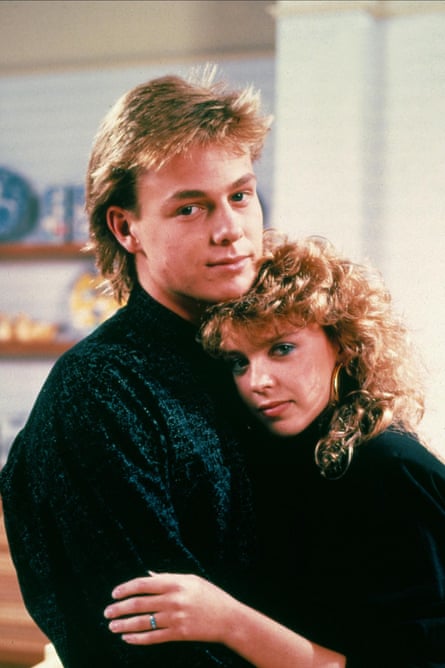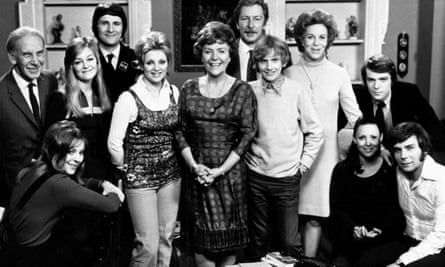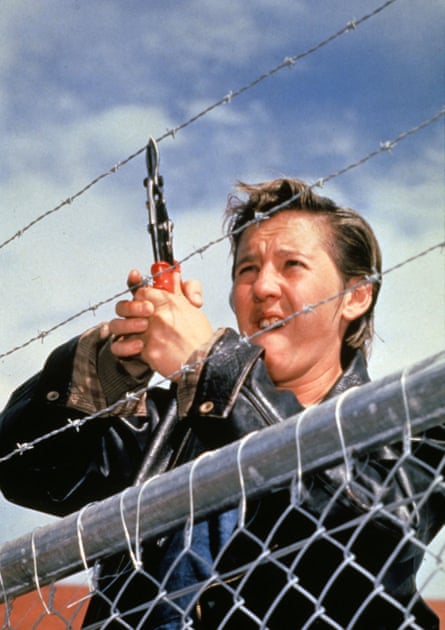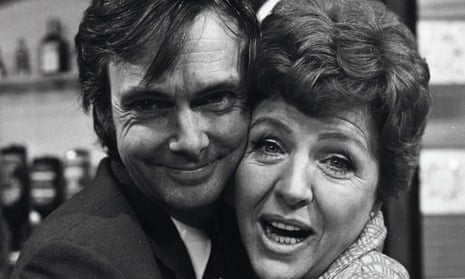The Australian television producer Reg Watson, who has died aged 93, was a pioneer of soap operas on both sides of the world. He adopted a policy of glamour, escapism and fun when he launched the daily serials Crossroads in Britain and Neighbours in his homeland, and ignored the critics who accused him of putting outlandish storylines on screen.
“It’s a form of drama that 20 million viewers love and a few critics love to hate,” he once said. “It serves a need in the community. It gives them some form of involvement in the lives of these people and they accept the fact that it goes over the top occasionally.”

In 1959, as a producer at the ITV company ATV, Watson mentioned to his boss, Lew Grade, how impressed he had been by the daily serials he had seen in the US, where the TV mogul had sent him to study television techniques before the opening of Britain’s commercial channel. However, it was five years before Grade gave him the task of making Crossroads the first five-day-a-week British television soap. It was to be the Midlands’ answer to Coronation Street, the popular soap that had begun in 1960.
Hazel Adair and Peter Ling came up with the story of two sisters, Meg Richardson, who owned a motel, and Kitty Jarvis, who ran a newsagent nearby in the fictional village of Kings Oak, on the outskirts of Birmingham. They called the serial The Midland Road, but Watson hated the title and organised a local newspaper competition for readers to suggest alternatives. He disliked all of those, too, and came up with the name Crossroads himself. He set about auditioning hundreds of actors.
He had no problems casting Noele Gordon as the matriarchal Meg – who had two children, Jill (Jane Rossington) and Sandy (Roger Tonge) – because he had produced the regional magazine show Lunchbox (1957-64), which she presented, and he knew she had already had a substantial career as an actor. “She was a personality, uncrowned queen of the Midlands,” he said. After Beryl Johnstone, who played Kitty, died suddenly in 1969, the action switched exclusively to the motel.
Crossroads began airing on 2 November 1964, at first only in ATV’s Midlands region. But it was eventually broadcast throughout the UK and proved a massive hit with viewers – up to 15 million during Watson’s tenure as producer – despite constant knocks from television critics, who lambasted it for wooden acting, wobbly sets and unbelievable storylines.
One of Watson’s last actions on Crossroads before returning to Australia in 1974 was to feature a car crash that left Sandy paralysed. He did not want the character to wallow in self-pity, so planned positive storylines that would see Sandy in a wheelchair helping to run the motel, with his mother caring for him. The fictional events highlighted some of the issues faced by people with disabilities and, as a result of the interest generated, Watson persuaded ATV to donate £10,000 to set up a service to give carers a break. Crossroads Care (now Carers Trust) was launched and now operates nationally.
The desire to present viewers with heart-warming storylines continued when, in Australia, Watson devised for Grundy Television his most successful soap, Neighbours. He baffled his scriptwriters by not allowing the central characters – the Robinson, Clarke and Ramsay families – to swear, smoke, drink excessively, take drugs or commit violence.

Watson said he was influenced by Coronation Street in creating a serial about family life, this time in Ramsay Street, in the fictional Melbourne suburb of Erinsborough, and he arrived at the simple title after considering No Through Road and One Way Street.
Neighbours was launched in Australia on Channel 7 on 18 March 1985 but axed after six months and 171 episodes. However, it moved to the rival Channel 10 in January 1986 with a major revamp notable for the increase in young characters, in particular Charlene Mitchell (Kylie Minogue) and Mike Young (Guy Pearce), with Jason Donovan taking over the role of Scott Robinson. Its newfound popularity as a teen soap was confirmed when the BBC began screening it in Britain in a daytime slot. Neighbours has since become Australia’s longest-running television serial; in Britain, it switched to Channel 5 in 2008 and is still going.
Reg was born in Maryborough, Queensland, grew up on a sugar farm and attended Flying Fish Point state school. On leaving, he worked in a jewellery shop in Innisfail and, aged 13, acted with the Unity theatre, Queensland. A year later, he became an actor, writer and announcer on local radio in Brisbane and Charleville. He also acted in, wrote and directed plays for Brisbane repertory theatre (1948-53).
In 1955, Watson moved to Britain and briefly acted on BBC radio before joining ATV’s London ITV service as a producer. He was made head of light entertainment when ATV Midlands began in 1956 and, until taking charge of Crossroads, produced everything from game shows to music, as well as creating the children’s programme Tingha and Tucker Club in 1962.
The TV entrepreneur Reg Grundy persuaded Watson to return to Australia in 1974 to become head of the newly established drama department at Grundy Television, previously known mainly for game shows. Taking with him Alan Coleman, a director on Crossroads, Watson turned Grundy into a leading producer of soaps.

Their earliest success was Coleman’s creation The Young Doctors (1976-83), about romances among staff at the fictional Albert Memorial hospital, and the first Australian serial to be sold abroad. Other international successes were Prisoner (1979-86, titled Prisoner: Cell Block H outside Australia), which gained a cult following with its stories of the female inmates of Wentworth Detention Centre, and Sons and Daughters (1982-87), featuring the wealthy Hamiltons of Sydney and the working-class Palmers of Melbourne. Watson created both and, as executive producer, contributed scripts to all of these soaps.
Also popular in Australia was the school-leavers soap The Restless Years (1977-82). Another Watson creation, Richmond Hill (1988-89), was axed after a year, although it received some screenings in Britain. Similarly, Dangerous Women (1991-93), Watson’s adaptation of Prisoner for the American market, flopped. He also resurrected The Restless Years as Goede Tijden, Slechte Tijden (Good Times, Bad Times) in the Netherlands in 1990 and as Gute Zeiten, Schlechte Zeiten in Germany in 1992. Both are still running.
In 2013, Prisoner was revived as a contemporary drama, Wentworth (called Wentworth Prison in Britain), based on Watson’s original concept.
Watson retired in 1992. He was appointed a member of the Order of Australia in 2010.

Comments (…)
Sign in or create your Guardian account to join the discussion